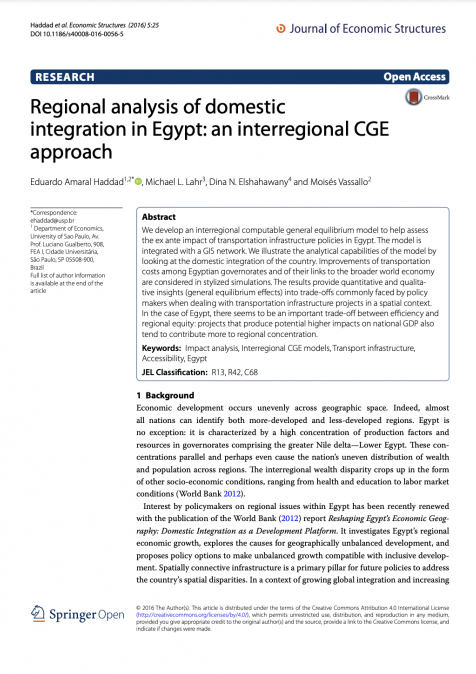Publications /
Paper in Academic Journals
We develop an interregional computable general equilibrium model to help assess the ex ante impact of transportation infrastructure policies in Egypt. The model is integrated with a GIS network. We illustrate the analytical capabilities of the model by looking at the domestic integration of the country. Improvements of transportation costs among Egyptian governorates and of their links to the broader world economy are considered in stylized simulations. The results provide quantitative and qualitative insights (general equilibrium effects) into trade-offs commonly faced by policy makers when dealing with transportation infrastructure projects in a spatial context. In the case of Egypt, there seems to be an important trade-off between efficiency and regional equity: projects that produce potential higher impacts on national GDP also tend to contribute more to regional concentration.









